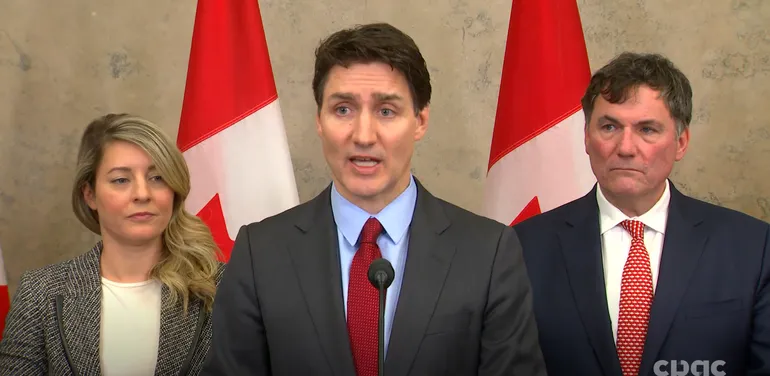Canada has responded to U.S. tariffs by imposing its own set of duties on imports from the country.
Prime Minister Justin Trudeau announced on Saturday evening that Canada would be implementing a 25% tax on $155 billion worth of U.S. imports in direct retaliation to the 25% tariffs imposed on Canadian goods by President Donald Trump earlier in the day.
The tariffs will be rolled out in two phases, as detailed in a press release from Canada’s Department of Finance.
The first phase, targeting $30 billion worth of goods, will come into effect on Feb. 4. The list of items subject to this phase includes orange juice, peanut butter, wine, spirits, beer, coffee, appliances, apparel, footwear, motorcycles, cosmetics, and pulp and paper.
“This initial set of countermeasures aims to protect and support Canada’s interests, workers, and industries,” stated Dominic LeBlanc, minister of finance and intergovernmental affairs. “The U.S. tariffs are clearly unwarranted.”
The second phase will focus on $125 billion worth of goods, with the complete list open for a 21-day comment period. This list will encompass products such as passenger vehicles, trucks (including electric vehicles), steel and aluminum products, specific fruits and vegetables, aerospace products, beef, pork, dairy, trucks and buses, recreational vehicles, and recreational boats.
Trudeau emphasized during a press conference that Canada did not seek this situation but will not shy away from defending Canadian interests and the strong partnership between Canada and the United States. He expressed hope for constructive dialogue in addressing various challenges faced by both nations and the global community.
In his executive order announcing tariffs against Canada, Trump cited concerns over fentanyl and illegal immigration. Canadian officials highlighted their efforts to combat these issues through a $1.3 billion border plan.
Trump cautioned that the U.S. could escalate its tariff measures further if Canada retaliates.
Canadian authorities reciprocated with a warning of their own, stating that they are considering all options, including non-tariff measures, should the U.S. persist with unjustified tariffs.

